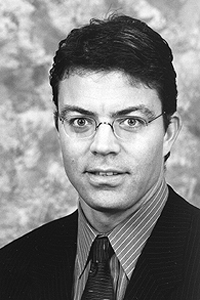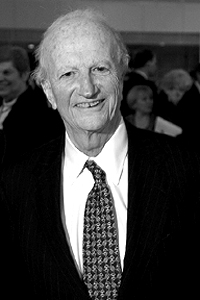Health economics paper receives international association’s award
By Rob McManamyNews Office
 Tomas Philipson | |
Accomplishing a rare repeat appearance in a very exclusive winner’s circle, Tomas Philipson, Professor in the Irving B. Harris School of Public Policy Studies, has won his second Kenneth J. Arrow Award for Best Paper in Health Economics.
The award, which the International Health Economics Association presents annually, was given for the paper titled, “The Quantity and Quality of Life and the Evolution of World Inequality,” co-authored with Gary Becker, University Professor in Economics, Sociology and the Graduate School of Business, and Rodrigo Soares of the University of Maryland. Their award-winning work was published in March in The American Economic Review.
“The article challenges conventional wisdom with a novel use of economic theory and measurement,” said iHEA executive director Thomas Getzen, a professor of risk at Temple University. “It elegantly shows that the most important export from the rich nations to the rest of the world in the 20th century was not airplanes, or cars, or computers, or even the Hollywood cinema, but science. Science in the form of medicine, and in the understanding of disease causation that has led to advancing public health.”
Philipson, Becker and Soares concluded that the global evidence from 1965 to 1995 “suggests that the large changes in mortality observed in the developing world were due to the absorption of previously available technology and knowledge, while developed countries took advantage of recent advances on the frontier of medical technology.”
 Gary Becker | |
To date, this is the 14th Arrow Award given by the iHEA, which represents 2,000 health economists in 72 countries. It will be formally presented to the winning trio at the organization’s bi-annual World Congress in Copenhagen in July, 2007.
Philipson also won the award in 2000, and Willard Manning, Professor in the Harris School of Public Policy Studies, won it in 2001 for a paper co-authored with the University of Wisconsin’s John Mullahy. Their study sought to devise better analytical strategies for measuring and predicting health care costs and utilization.
Started in the early 1990s, iHEA was formed to increase communication among health economists, foster a higher standard of debate in the application of economics to health and health care systems, and assist young researchers at the start of their careers.
The Arrow Award is named in honor of Kenneth Arrow, professor emeritus of Stanford University and the 1972 winner of the Nobel Memorial Prize in Economic Sciences. Arrow’s groundbreaking research on risk and insurance remains one of the foundations of modern health economics.
![[Chronicle]](/images/sidebar_header_oct06.gif)